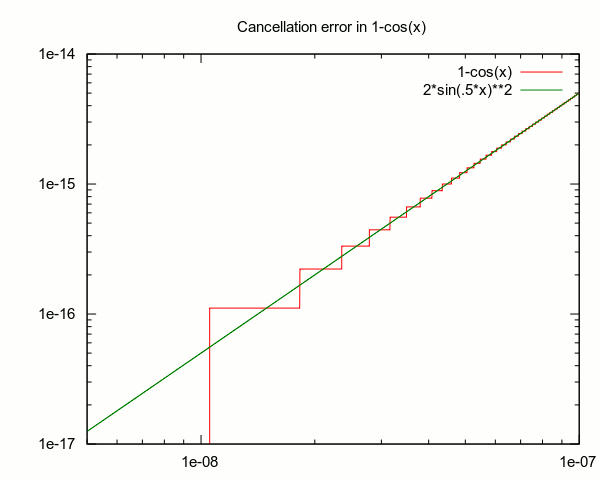14 January 2013, 13:42 UTC
In the quest to "prove" the quality of the numbers output by my Arduino Random Number Generator, I've come across the concept of hash saturation while reading about the turbid random number generator which uses noise plus hash to give high quality random numbers. Implicitly I've relied on hash saturation all along, but now I have is a mathematical basis for this reliance.
Hash saturation calculator
In the quest to "prove" the quality of the numbers output by my Arduino Random Number Generator, I've come across the concept of hash saturation while reading about the turbid random number generator which uses noise plus hash to give high quality random numbers. Implicitly I've relied on hash saturation all along, but now I have is a mathematical basis for this reliance.
7 March 2012, 15:42 UTC
I was recently reminded of the importance of choosing numeric algorithms that don't behave catastrophically for certain inputs. One example is the calculation of 1-cos(θ) for small θ. In this case, cos(θ) is very close to 1, leading to a large cancellation error in the subtraction step.
Cancellation error
I was recently reminded of the importance of choosing numeric algorithms that don't behave catastrophically for certain inputs. One example is the calculation of 1-cos(θ) for small θ. In this case, cos(θ) is very close to 1, leading to a large cancellation error in the subtraction step.

All older entries
Website Copyright © 2004-2024 Jeff Epler